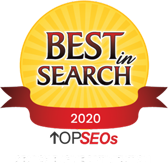Decoding SEO: What Does SEO Stand for in Marketing?
In the dynamic realm of digital marketing, understanding the intricacies of SEO (Search Engine Optimization) is paramount for businesses looking to thrive online. This comprehensive guide will delve into what SEO stands for in marketing, its significance, and its role in driving online success.
Demystifying SEO in Marketing
SEO, an acronym for Search Engine Optimization, refers to optimizing your website and content to rank higher in search engine results pages (SERPs). SEO aims to improve your website’s visibility and attract more organic (non-paid) traffic from search engines such as Google, Bing, and Yahoo.
The Significance of SEO in Marketing
SEO plays a pivotal role in marketing for several reasons:
1. Increased Visibility: By optimizing your website for relevant keywords and phrases, SEO helps improve its visibility in search engine results. This increased visibility exposes your brand to a broader audience, driving more organic traffic to your website.
2. Enhanced Credibility: Users often perceive Websites at the top of search results as more credible and trustworthy. By ranking higher in search engines, SEO helps establish your brand’s authority and credibility in your industry.
3. Cost-Effectiveness: Compared to traditional advertising methods like print or TV commercials, SEO offers a more cost-effective way to reach your target audience. Once your website ranks well in search results, you can attract organic traffic without ongoing advertising costs.
4. Targeted Audience Reach: SEO allows you to target specific keywords and phrases relevant to your products or services. This targeted approach ensures that your website is visible to users actively searching for solutions or information about your business.
The Role of SEO in Marketing Strategy
In today’s digital landscape, SEO is integral to any comprehensive marketing strategy. Here’s how SEO fits into the broader marketing ecosystem:
1. Content Marketing: SEO and content marketing go hand in hand. By optimizing your content for relevant keywords, you can attract more organic traffic to your website. High-quality content also improves user engagement and encourages repeat visits, boosting your SEO efforts.
2. Social Media Marketing: While social media platforms like Facebook, Twitter, and Instagram are essential for brand visibility and engagement, SEO complements social media marketing by driving traffic from search engines to your social media profiles and vice versa.
3. Paid Advertising: SEO and paid advertising (such as Google Ads) can work synergistically to maximize your online visibility. While paid ads provide immediate results, SEO offers long-term benefits and helps reduce reliance on paid advertising over time.
4. Email Marketing: SEO can enhance the effectiveness of your email marketing campaigns by driving traffic to your website’s landing pages, blog posts, or product pages. This integrated approach ensures that your email subscribers have access to valuable content and information.
Implementing Effective SEO Strategies
To harness the power of SEO in marketing, businesses can implement the following strategies:
1. Keyword Research: Conduct thorough keyword research to identify relevant keywords and phrases your target audience is searching for. Use tools like Google Keyword Planner, SEMrush, or Ahrefs to discover high-potential keywords for your website.
2. On-Page Optimization: Optimize your website’s on-page elements, including meta titles, meta descriptions, headings, and content, to align with your target keywords. Ensure your website’s structure is user-friendly and easy to navigate for users and search engines.
3. Content Creation: Create high-quality, informative content that provides value to your target audience. Focus on producing evergreen content that remains relevant over time and encourages user engagement and interaction.
4. Link Building: Build a strong backlink profile by earning links from authoritative and relevant websites in your industry. Focus on acquiring high-quality backlinks through guest blogging, influencer outreach, and content promotion.
5. Technical Optimization: Optimize your website’s technical aspects, including site speed, mobile-friendliness, URL structure, and schema markup. Ensure that your website is accessible and indexable by search engine crawlers.
Conclusion: Maximizing Your Marketing Potential with SEO
In conclusion, SEO stands for Search Engine Optimization, and it plays a crucial role in marketing by improving your website’s visibility, credibility, and reach. By implementing effective SEO strategies, businesses can attract more organic traffic, enhance brand awareness, and ultimately drive online success. Whether you’re a small business or a large corporation, understanding the significance of SEO in marketing is essential for staying ahead of the competition in today’s digital age. So, embrace the power of SEO and unlock your marketing potential to reach new heights of success.





























